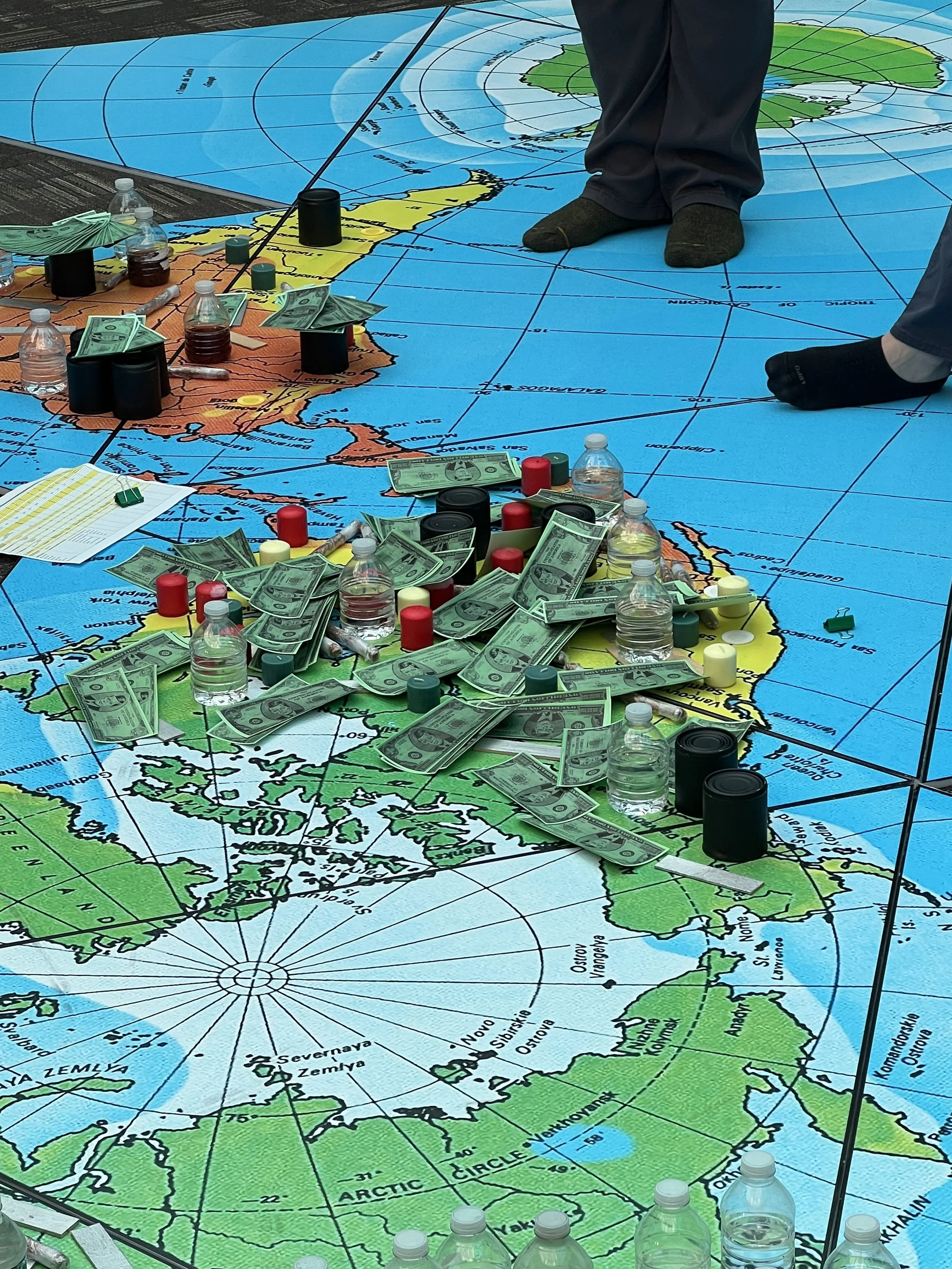The Fuller Dome as Extension of Your Classroom:
Political Science, Economics, and Public Administration – Buckminster Fuller's ideas allow for students and in political science, economics, and public administration to tackle complex global challenges. His emphasis on comprehensive thinking, sustainable design, resource efficiency, and global cooperation provides a powerful lens through which to analyze and address critical issues facing humanity.
Comprehensive Anticipatory Design Science:
Political Science and Public Administration: Fuller advocated for a comprehensive, anticipatory approach to problem-solving, going beyond narrow, specialized perspectives to address issues like hunger, illiteracy, and environmental degradation at a global scale. This approach aligns with the need for policymakers and administrators to consider interconnected systems and anticipate future consequences when developing policies.
Economics: Fuller's concept emphasizes using resources efficiently and sustainably through design and technology, aiming to benefit all of humanity without ecological harm or disadvantaging anyone. This principle directly applies to economic analysis of sustainable development and the design of economic systems that promote resource efficiency and equitable distribution of wealth.
World Game:
Political Science and Public Administration: Fuller's "World Game" was an educational simulation designed to help individuals and policymakers understand global challenges and collaboratively develop solutions. It promoted a holistic view, challenging the nation-state perspective and encouraging cooperation to address global issues like resource management and conflict resolution.
Economics: The World Game simulated the task of making the world work for 100% of humanity, exploring resource allocation and distribution. This connects to economic studies of global resource management, sustainable development, and economic inequality.
Ephemeralization:
Economics: Fuller coined "ephemeralization" to describe achieving "more with less," using technology and design to increase efficiency and resource productivity. This idea is relevant to economic concepts like dematerialization and eco-economic decoupling, which aim to increase economic well-being while reducing resource consumption and environmental impact.
Spaceship Earth:
Economics: Recognizing Earth as a finite system with limited resources has profound implications for economic theory and policy. It prompts a shift from endless growth models to sustainable development paradigms that prioritize resource conservation, efficiency, and responsible stewardship.

